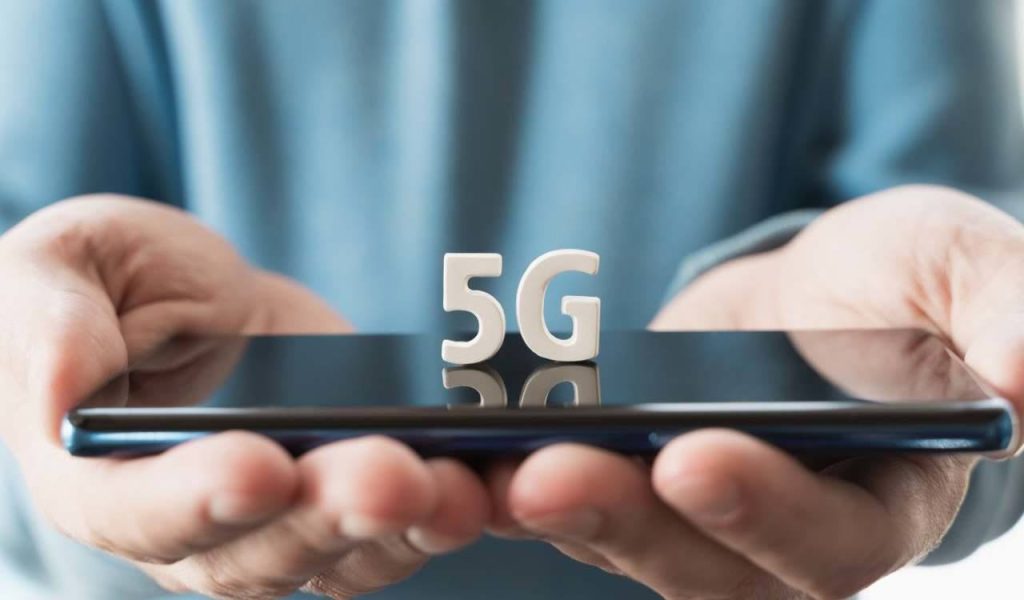As impressive as the improvements have been with each new generation of cellular technology, the step from 4G to 5G will be more profound than any before and, by the end of the next decade, will reshape the broadband landscape. Specifically, 5G networks using mmWave frequencies will leapfrog over the capabilities of today’s hybrid fiber coaxial networks. As analyzed and quantified in a report I recently completed with Datacomm Research, “Broadband Disruption: How 5G Will Reshape the Competitive Landscape,” three technical innovations are converging to deliver unprecedented performance.
First and foremost, 5G will gain access to vast amounts of new spectrum. The first in a series of auctions in the United States targeted for 5G will allocate 3.85 GHz of licensed spectrum. Compared to today’s 750 MHz of licensed spectrum, this is a gigantic 500% increase. Second, small but powerful base station antenna arrays using massive multiple-input multiple-output (MIMO) will be able to focus the radio signals into narrow beams, not only extending the range of the signals but also permitting multiple simultaneous beams, increasing spectral efficiency. Third, a small-cell architecture, inherent to the shorter range of mmWave signals, will further increase capacity by reducing the coverage area of each cell and, consequently, the number of users sharing the same spectrum. Our analysis shows that these innovations will result in almost three times the annual gain in wireless network capacity over the next 10 years compared to the average annual gain over the past two decades.
The resulting networks will prove formidable, crossing the chasm holding back today’s 4G LTE wireless networks: namely, the inability of most consumers to cut both the television cord and the broadband cord. 4G may have the throughput to support high-definition streaming, but such streaming can consume 1 Gbyte per hour, quickly bumping into the constraints of today’s unlimited plans, which throttle traffic after about 20 Gbytes. In contrast, 5G in dense deployments will not only be able to handle today’s TV viewing on large screens but will also scale to support ultrahigh-definition and even greater data-consuming applications such as virtual reality.
Such dense deployments will require hundreds of thousands of small cells nationwide. Verizon, for example, stated that it might eventually need 8,000 to 10,000 small cells in Boston alone. The small cells will also need much denser fiber networks than currently exist, but technology advances will help. For example, 3GPP is studying a 5G capability called Integrated Access and Backhaul, with which a cell can use a 5G radio for backhaul, even relaying traffic through other sites. Thus, only a subset of sites will need a fiber connection. Siting for small cells may also become more accessible as the FCC and state governments act to modernize rules. Combined with other innovations, such as support for mission-critical applications, low-power IoT, and distributed computing that extends to the network edge, 5G will transform multiple industries.
A case in point is fixed wireless access, one of the first major use cases. Verizon is trialling prestandard 5G in 11 cities this year. Questions remain about the exact cell density needed and the precise effects of different residential layouts and landscapes on mmWave signals, but all of these challenges appear solvable, thrusting mobile operators and fixed-broadband providers such as cable companies into uncharted competitive territory. Cable operators have their own road map for increasing capability, as our report quantifies, such as increasing cable’s spectral bandwidth. However, this requires reducing the length of coaxial cables and making large new investments to extend fiber closer to homes. Cable companies could use mmWave in some scenarios, explaining Charter’s 5G research efforts. Just as long-distance telephony, once a thriving business separate from local telephone service, was obliterated by technology advances, 5G is likely to make the current separation of broadband into fixed and mobile services obsolete.
Despite requiring investments that could run into hundreds of billions of dollars, these new ultradense networks, fueled by small cells and capacious millimeter wave spectrum, will be the railroads of the 21st century. They will unleash the innovation of the likes that we can only begin to imagine. Get ready. The entire communications landscape is about to change.
Peter Rysavy, president of Rysavy Research, has analysed and reported on wireless technologies for over 20 years. See www.rysavy.com. In addition, he will be moderating Massive Broadband Network Densification—Unleashing the Opportunities of 5G.



